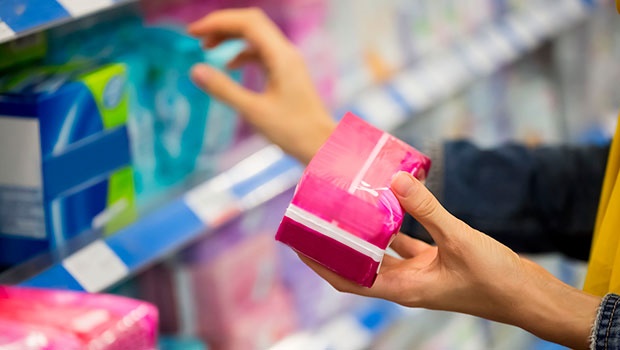
In January 2011 I wrote an article about the expenses related with sanitary products. I estimated that in a lifetime a woman is likely to use around 11 000 tampons or sanitary towels – that’s a cautious estimate of around 3 per day of menstruation or 22 per period.
Periods vary – they can be light or heavy, last a few or many days, happen once a month or more often. Sanitary products are not without their flaws and can leak, requiring you to replace them more often.
In 2011 tampons cost around R33 per period and sanitary towels cost around R36 per period if you were only using one or the other, and only using 22. I took a quick look in the shops on Friday and a 16 pack of non-applicator tampons ranges between R21.99 and R31.99 (R1.37 – R2 per tampon), and a packet of 10 pads ranges from R8.99 and R26.99 (89c – R2.70 per pad) depending on brand, flow, and style.
This means that spending per period could range from R19.58 per period at the lowest cost to R59.40 per period at the higher end. If you multiply this figure by the estimated 11 000 sanitary products in a lifetime you get a range of R9 790 – R29 700.
Yet, these products continue to be taxed through Value Added Tax – a tax that is defined by SARS as ‘indirect tax on the consumption of goods and services in the economy’. This is a tax burden only borne by women.
This is money that is unavoidable if you are a woman and want to menstruate and continue your normal day-to-day activities.
In a country where women continue to be more likely to be poor, and girls continue to miss school and university because of menstruation, this is a problem that cannot go unaddressed.
In January 2011 the President of South Africa promised that free sanitary towels would be available ‘soon’.
This year Africa Check estimated that the number of girls missing school during their period was hard to track, but that in 2016 there could be as many as 3.7 million girls in secondary schooling that would miss school because they were unable to purchase sanitary products.
If the state were to meet their commitment to providing these girls with the roughly 264 sanitary products they need per year it would cost the state R869 352 000 per year at the low end.
In April 2016 calls circulated on social media, in universities, and in Parliament, and around the world for taxes on sanitary products to be removed.
The Department of women received an instruction to ensure that sanitary products are available to women and schoolgirls across the country every day.
In 2011 I suggested the option of the menstrual cup (moon cup), a reusable sanitary product that is long lasting and overall more cost-effective at R530 – R550 per cup and lasting up to four years. The option remains unexplored, yet it could save the state money and keep women in schools.
You can follow Jen on Twitter, on her blog and on her website.
Read more:
Free sanitary towels a reality? I don't think so
Tampon versus pad: why more women still choose the latter to manage periods




 Publications
Publications
 Partners
Partners










